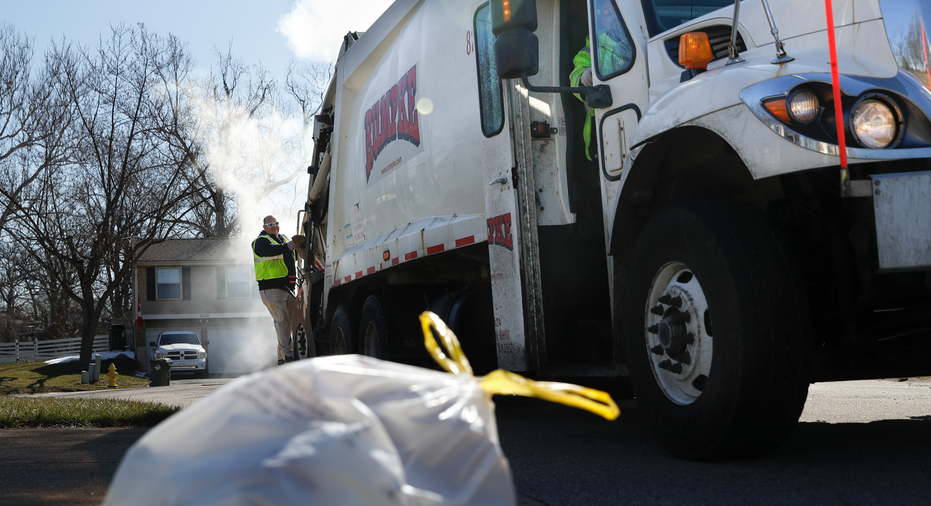Sanitation worker safety: Group wants penalties passed

COLUMBUS, Ohio – Kenny Lawson loved being a garbage collector.
The Germantown, Ohio, resident enjoyed working outdoors alongside his family, throwing his "solid as a horse" frame into physical labor that made people's lives better. One customer left a cooler near the curb on hot days filled with cold pop.
"We treated them as family, they treated us as family," Lawson said.
It all ended on March 12, 1996, in an explosion of speed. A car hurtled into Lawson, then 26, at 40 mph (64 kph) as he was retrieving a can from the truck, pinning him underneath the truck and wrenching his body nearly in half. His spine was crushed and he lost his legs.
"He didn't even hit the brakes. He didn't see the truck sitting there," Lawson said. "It was a pretty dramatic hit. For the first three weeks, they told my wife I was dead."
Lawson miraculously survived and he's gone on to become a poster child for the risks of an industry that most people take for granted.
Fifty years after two sanitation workers' deaths sparked a historic strike in Memphis that's intertwined with the assassination of Martin Luther King Jr., trash collection remains one the nation's most dangerous jobs.
The Solid Waste Association of North America and the National Waste & Recycling Association are working this year to pass legislation in 16 states, including Ohio, to create penalties for motorists who don't slow down and give garbage collectors enough space.
"Imagine how you feel when you see the garbage truck in your neighborhood," said David Biderman, the solid waste association's CEO and executive director. "It's, 'Oh, man, the garbage truck,' and you've got to get around it quickly."
Under the bills, drivers who fail to move over for a garbage truck with its lights flashing could be fined $300 plus court costs and charged with a moving violation.
According to the Bureau of Labor Statistics, refuse and recycling collection has the fifth highest death rate among all civilian occupations in the U.S. In 2016, the most recent year for which federal figures are available, 31 people died, about two-thirds in transportation-related cases.
In what Biderman has called "an extraordinarily bad start" to 2018, seven sanitation workers were killed in the U.S. in just the first 10 days of the year.
Lawson said he wishes that motorists would just slow down. It's a message being spread through the "Slow Down to Get Around" campaign accompanying the legislative push.
"We can do only so much. It's also got to be put on the driver," Lawson said.
One issue that's arisen is whether there's any evidence that similar laws on slowing down and passing safely are actually effective.
Cody Nehiba, a doctoral candidate in economics at the University of California-Irvine, studied state laws requiring motorists to clear bicyclists by at least 3 feet (0.91 meters) and found no significant effect on the number of cyclist fatalities.
Among the reasons he cites are ambiguous wording, weak enforcement and a lack of public awareness of such laws. But he says he doesn't see them as a negative.
"Even if they have a very, very small impact, it's not costing very much," Nehiba said.
The Memphis workers in 1968 weren't struck but crushed by a malfunctioning truck. The workers' strike that ensued was the reason King was in Memphis the night he was shot.
In recent decades, advances in automatic loaders have made the field safer, Biderman said.
Lawson said, despite his accident, two of his children would love to reopen the family refuse business, Lawson's Waste Collection. It was started by his father in 1949 and shuttered after Lawson was injured.
Asked if that would make him nervous, Lawson said, "It would, because of the safety issues. But if one of my sons was a cop, I'd be nervous. If he was in the military, I'd be worried all the time, too. But there's a lot of things that is out there like that that need to get done. You just got to go and do it. You hope for the best."



















